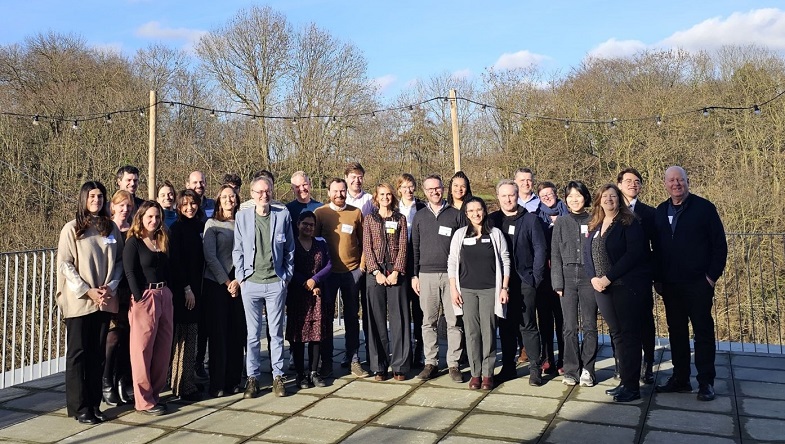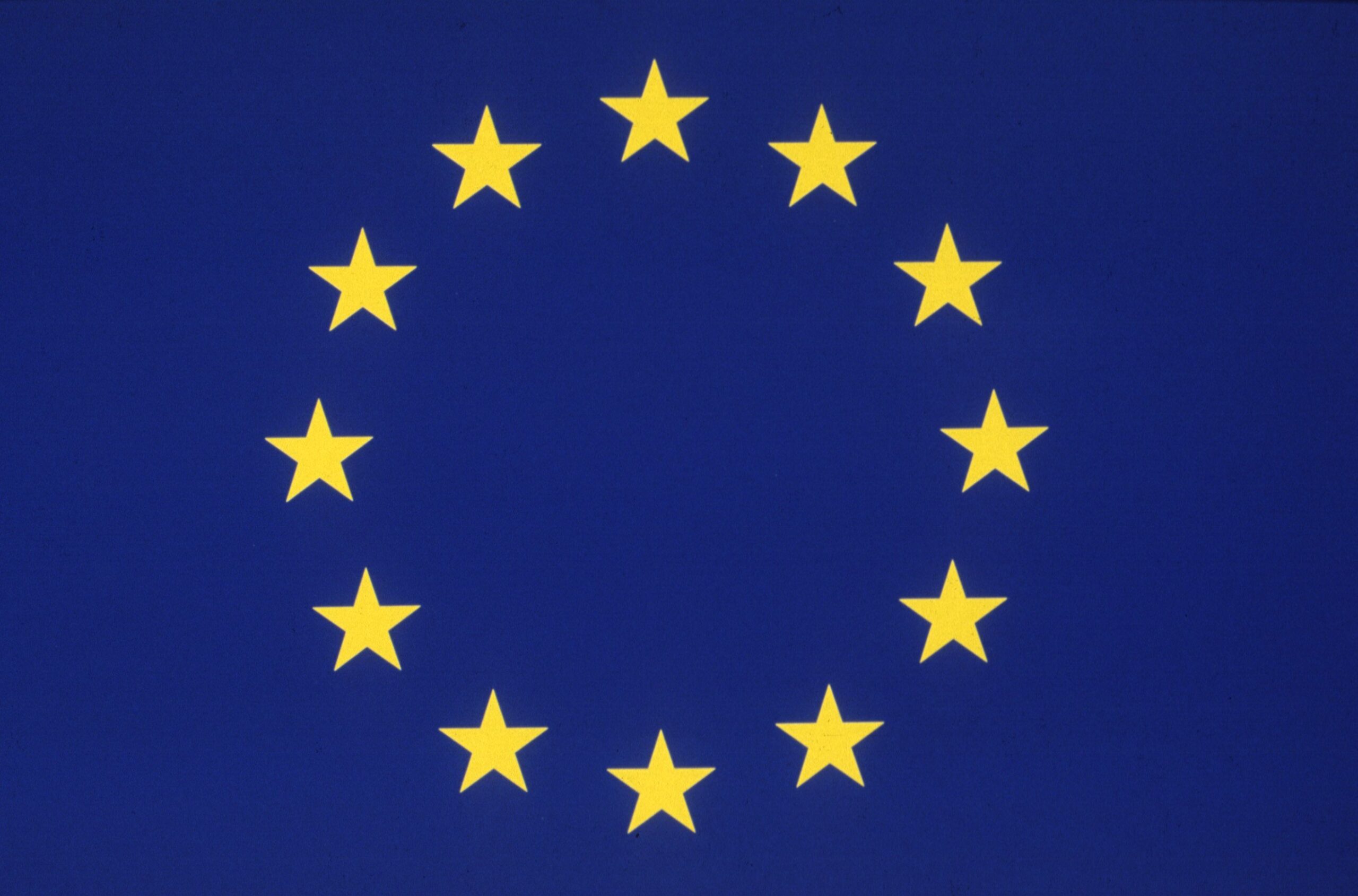Workplace Health and Wellbeing, Orchestrated by SONATA
At the beginning of February, a new consortium, comprising sixteen academic, industrial and stakeholder partners from ten European countries, gathered at KU Leuven, Belgium, to kick off the innovative Horizon Europe project, SONATA: Situation-aware OrchestratioN of AdapTive Architecture.
Their aim? To improve our workplace health and wellbeing through novel adaptive architectural solutions.

Health and Wellbeing Challenges in Our Changing Workplaces
Even before the digital and green “twin” transitions, the use of open-plan workspaces has been widely adopted by many organisations. Whilst such workplaces offer flexibility in accommodating a wide variety of simultaneous tasks, not least at a time when workforce presence can be unpredictable or intermittent, the majority of workers express dissatisfaction with such working environments. This dissatisfaction goes beyond mere discomfort, and workers report negative impacts on health, wellbeing, productivity, and social relations. The most common aspects of workspace design which occupants identify as harmful are acoustic discomfort, a perceived lack of control of environmental conditions, insufficient space, and privacy-related concerns, resulting in challenges to both physical and mental health. The knock-on effects of these health impacts can ultimately undermine the performance of an entire organisation through heightened sickness absence, disengagement and employee turnover.
In addition, the COVID-19 pandemic starkly highlighted how modern shared workspaces are unable to maintain preventive Occupational Safety and Health measures. The inability to regulate ventilation efficiently, rearrange spaces or set up temporary physical barriers that protected people from potentially dangerous working conditions were significant design weaknesses, with major impacts both during and after the outbreak. Indeed, post-COVID, 64% of Europe’s workforce does not wish to return to the workplace. The relationship between the workplace and workforce is broken, with adverse consequences for employee interaction, creativity and engagement on the one hand, and mental and physical wellbeing on the other.
Encouraging people to return to the workplace therefore requires the design of spaces that reawaken a sense of engagement and a collaborative working culture. By empowering workers with greater control over their environment, providing adequate personal space for focused work and minimising negative health factors, workers can begin to feel comfortable, healthy, and supported within their workplace.
The question remains, how?
Orchestrated Adaptive Architecture as Workplace Design Intervention
Many workspaces have implemented the use of “adaptive” technologies to manage the negative health and wellbeing issues reported by their occupants. Most amount to the automation of individual architectural functions. SONATA’s distinctive contribution lies in investigating the use of multiple, orchestrated, design interventions working in concert, and how they can be objectively measured, benchmarked, and optimised for a variety of hybrid workplace contexts. These adaptive elements will include acoustic ceiling panelling, electrochromic glass panels, Air HVAC and lighting systems, robotic wall partitions and adjustable furniture. Throughout this process, people will be at the front and centre. Workers in real-life situations lie at the heart of SONATA’s methodology and results. A human-building interface will be developed, one that facilitates workers’ environmental control and which takes SONATA beyond the simple automation characterising previous solutions.
Towards Implementation
Impact is key to SONATA. Over the next four years, the project will work towards publishing its findings as evidence-based recommendations and guidelines, considering key factors such as cost, benefits, sustainability, and implementation barriers across various, actively participatory, key target groups. By taking into consideration these practical aspects, SONATA will maximise the translatability and therefore the potential life-enhancing impact of its findings.
A Truly Multi-Disciplinary Approach
To successfully tackle the challenges inherent in the project, the SONATA consortium brings together expertise from multiple disciplines and sectors, including health and wellbeing (Uniklinik RWTH Aachen, Germany; Universita’ Degli Studi Di Perugia, Italy); social sciences and humanities (IRI UL Institute for Innovation and Development of University of Ljubljana, Slovenia; MUNI Masarykova Univerzita, Czech Republic); technological experts (bGRID, The Netherlands; Technion – Israel Institute Of Technology; KU Leuven, Belgium); architects (UNStudio, The Netherlands); industrial adaptive technology experts (ROCKWOOL, Denmark; Vetrotech Saint-Gobain International, Switzerland; Delta Light, Belgium) as well as key target group representatives (Conseil Des Architectes D’Europe, Belgium; Green Building Council Italia, Italy; Workplace Innovation Europe, Ireland) and a professional dissemination partner (EValTech R&D, Italy). Together, they will orchestrate exploitable, innovative, human-centric design solutions that will make our workspaces better.
[1] Hodzic, S. et al. Activity-Based Flexible Offices: Effects on Work-Related Outcomes in a Longitudinal Study. Ergonomics, 64(4), 2021.
[2] Borge, R. H. et al. Office Design, Telework from Home, and Self-Certified Sickness Absence: A Cross-Sectional Study of Main and Moderating Effects in a Nationally Representative Sample. Scand. J. Work Environ. Health, 49(3), 2022.
[3] Parkinson, T. et al. Common Sources of Occupant Dissatisfaction with Workspace Environments in 600 Office Buildings. Buildings and Cities, 4(1), 2023.
[4] Rashid, M. et al. A Review of the Empirical Literature on the Relationships Between Indoor Environment and Stress in Health Care and Office Settings. Environ. and Health, 40(2), 2008.
[5] Hilberath, C. et al. Hybrid Work is the New Remote Work. BCG, 2020.
[6] Redlein, A. et al. Differentiation of Work-Tasks at Homes and Offices. In TWR 2022.
[7] McKinsey. 2023. The Future of the Workplace. https://www.mckinsey.com/featured-insights/future-of-the-workplace
[8] Unispace. 2021. Mayor New Study by Unispace Reveals Two Thirds of Employees Across Europe Reluctant to Return to the Office Post-Covid. prnewswire.com
[9] Appel-Meulenbroek, R. et al. How to Attract Employees Back to the Office? A Stated Choise Study on Hybrid Working Preferences. J. of Environ. Psych., 81, 2022.
Share This Story!

European Workplace Innovation Network (EUWIN)
EUWIN was established by the European Commission in 2013 and is now entirely supported by contributions from an international network of partners co-ordinated by HIVA (University of Leuven). EUWIN also functions as a network partner to BEYOND4.0 and BRIDGES5.0 projects.
Contact: Workplace Innovation Europe CLG (contact@workplaceinnovation.eu).

